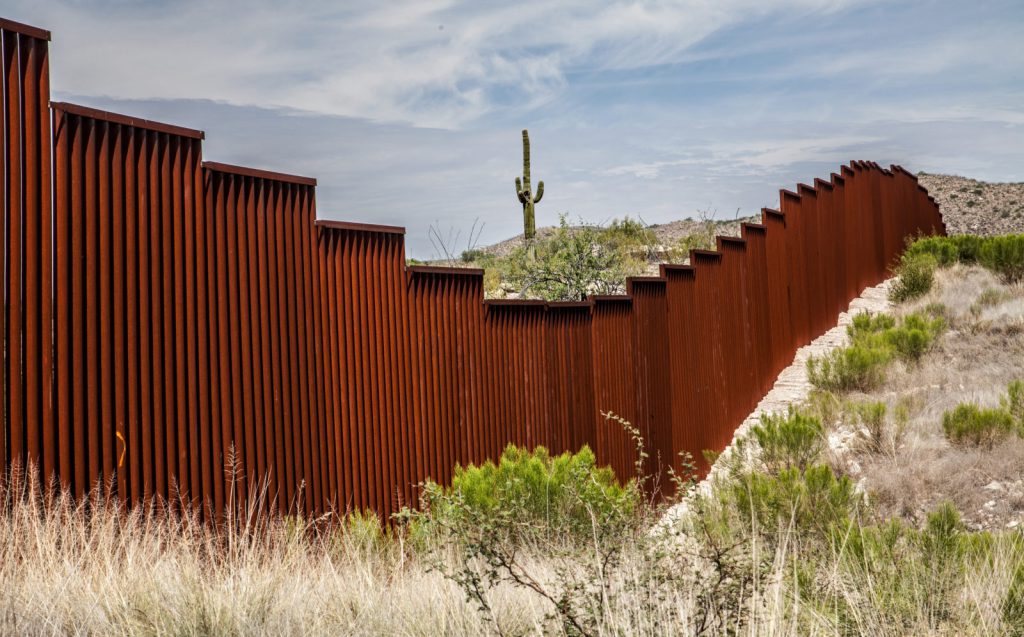
Published January 7, 2019
The Washington Post
By Henry Olsen
President Trump has threatened to declare a national emergency to break the impasse over the funding and construction of his beloved border wall. This might be a good negotiating tactic, as Democrats could strike a bargain out of fear that the new conservative Supreme Court majority could ratify his decision. Actually doing it, however, would be a bad idea, both legally and politically.
The Korean War-era case of Youngstown Sheet & Tube Co. v. Sawyer seems to stand directly in Trump’s way. That case involved an executive order by President Harry S. Truman to seize and operate the nation’s steel mills in the face of a nationwide strike to ensure that steel could continue to be made during the Korean War. Six members of the Supreme Court held that the president’s action was unconstitutional, supported by neither legislative authorization nor implied Article II constitutional powers.
If Trump tried something similar, Democrats and immigration advocacy groups would immediately file a lawsuit, using this case as authority. Rep. Adam B. Schiff (D-Calif.) has already implied doing so, noting, “If Harry Truman couldn’t nationalize the steel industry during wartime, this president doesn’t have the power to declare an emergency and build a multibillion-dollar wall on the border.”
That suit alone would almost surely hold up the wall’s construction until the case wound its way to the Supreme Court, which would likely hear and decide it in the middle of the 2020 campaign. Trump should recall that this was what happened in the case challenging the constitutionality of Obamacare’s individual mandate, decided by the court in mid-2012. Chief Justice John G. Roberts Jr. sided with the court’s four liberals then, essentially rewriting the landmark law to uphold it. It’s easy to see Roberts doing that again, essentially forcing the issue back into the political realm for the voters to decide whether they want a wall or not.
This outcome is made likelier by the fact that the court will have to decide whether an actual “emergency” exists that could justify Trump’s order in the face of the Youngstown precedent. Many laws give the president the authority to seize land or undertake other actions in the event of an emergency, but the current state of the border is not an emergency in the common meaning of that word. Something has to “emerge” — in other words, something has to change from a prior condition — for there to be an emergency. The state of our border with Mexico has been roughly the same for years, and Congress has continued to disagree with the president about the need for his wall. Trump’s use of executive power to unilaterally resolve a political dispute with Congress would be exactly the type of act that conservatives rightly decried during the Obama administration.
Politics also militates against this course of action. Trump’s critics, conservative and liberal alike, have long raised the specter that he is a potential dictator. His warm statements regarding authoritarian leaders such as Russia’s Vladimir Putin or China’s Xi Jinping have heightened those fears. Unilaterally declaring an emergency where none in fact exists would make the rule of law, not the political dispute over border security, the key issue of the election. It’s impossible to see how this works in Trump’s favor given that a majority of Americans already hate or dislike him. Indeed, Republicans in Congress could easily abandon Trump over this issue if they thought it necessary to save their own skins.
As I’ve remarked earlier, Trump will politically benefit from the shutdown no matter how it is resolved. It would be folly to throw that advantage away.
Henry Olsen is a senior fellow at the Ethics and Public Policy Center, editor at Unherd.com and author of “The Working Class Republican: Ronald Reagan and the Return of Blue-Collar Conservatism.”








